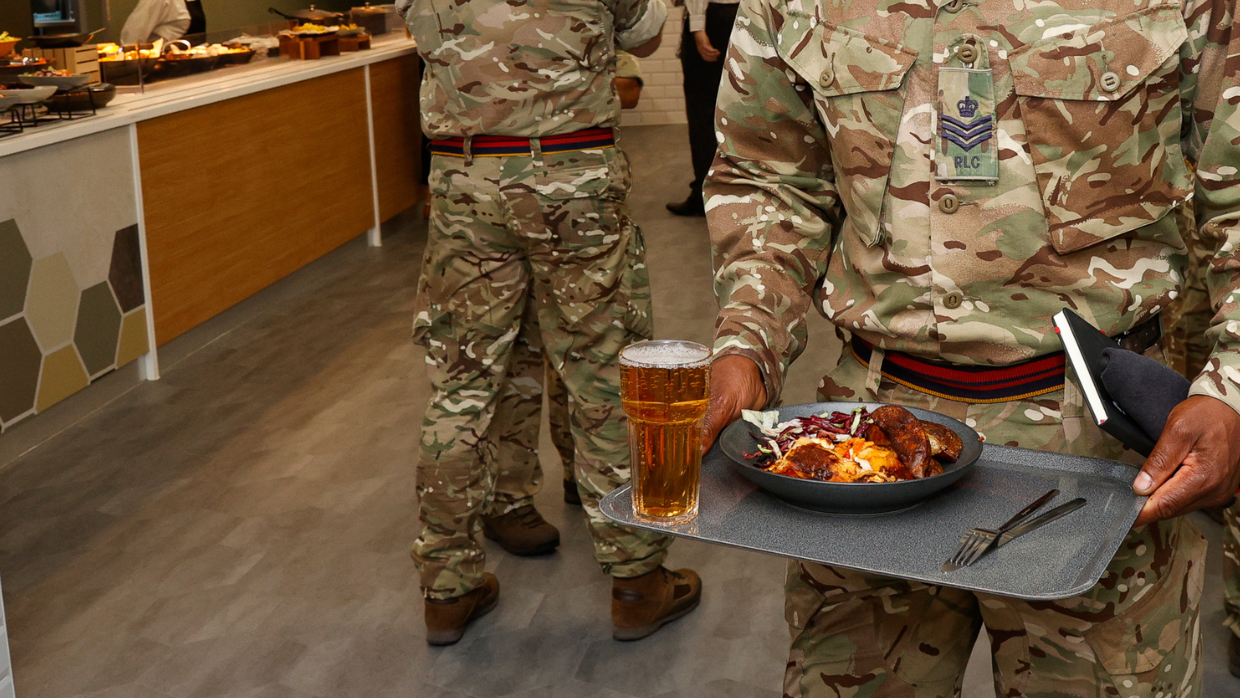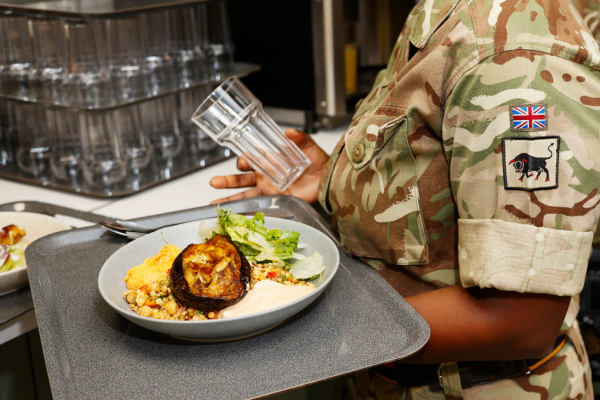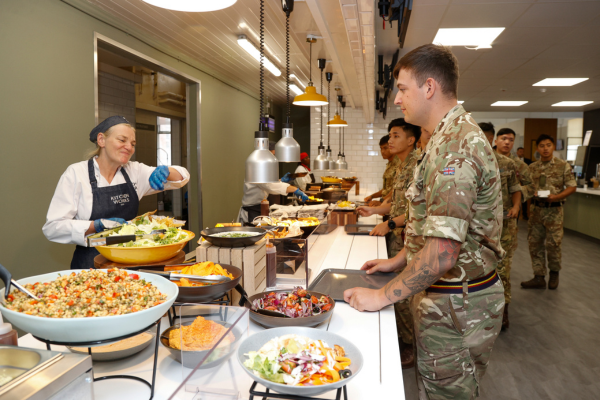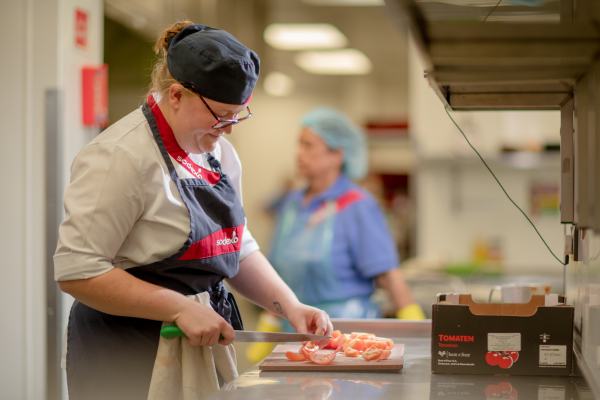
Food on base: What service personnel want and need
Food plays a crucial role in physical and mental health and wellbeing. In addition to providing essential nutrition, it is at the heart of social occasions - a source of comfort and enjoyment that brings people together. Nowhere is this more important than in the military, where personnel must be physically prepared, mentally sharp, and operate as a cohesive unit. In this article, we explore the importance of food on base.
Life on base can be challenging, with established structures and routines to keep to, as well as the constant need to maintain personal and team discipline. It can be isolating, particularly for junior rank personnel who are away from their families.
Research from Ipsos MORI, commissioned by Sodexo, shows that dissatisfaction with time spent off-duty is often the result of low-quality living standards and the quantity, variety, and availability of food. Lack of autonomy is also a source of frustration.
But what food do personnel want and need, and what opportunity is there to improve the current offering, tackle dissatisfaction and enhance life on base, boosting morale and nourishing a military to be fit, primed and ready?
Addressing the nutritional needs of military personnel
The Defence catering manual, JSP456, states that nutrition is “fundamental to military physical capability” as well as the health and wellbeing of personnel.

Army EATS research published in December 2020 found 78% of service personnel believe they have a good grasp of what they should eat, while 67% try to eat healthy.
However, there is a significant gap when it comes to the perceived ease of eating healthily on base, with more than a third citing this as a challenge.
Each meal, therefore, brings clear needs and opportunities.
In May 2022, Sodexo launched Junior Ranks Dining (JRD) by Kitchen Works Co. in response to the Army EATS initiative. JRD by Kitchen Works Co. takes inspiration from our Kitchen Works offer, but it has been tailored to the specific needs and preferences of military personnel.
For example, we know from the Army EATS research that only 55% of personnel regularly eat breakfast. JRD therefore enables healthy and nutritious ‘grab and go’ options with speedy service and plenty of variety.
The impact of food on the health and wellbeing of military personnel
Beyond the nutritional benefits, mealtimes are often one of the highlights of the day for life on base, with Sodexo workshops revealing that junior ranks relish catching up with friends while cooking lunch after their shift, while sergeants enjoy the café facilities available on some bases.
Food has long been synonymous with communing, bonding, and interacting, and there is a clear need for greater sociability and conviviality on base.
Yet dinner participation in the Mess is low at just 46%, according to the Army EATS research, with 57% of personnel preferring to cook for themselves when they can. The Ipsos MORI research identified a particular desire for this among junior personnel, especially in the evenings and during weekends.

Junior ranks tend to eat alone in their rooms out of preference of eating their own food and saving money, and are deterred from eating at the Mess because they perceive it to be too formal. Isolation can have a negative impact on mood and, more broadly, on mental health.
JRD by Kitchen Works Co. addresses this by providing a warm, friendly and relaxed dining experience that competes with anything that can be found on the high street. Food is interesting and healthy, while meal deals, promotions and appropriate portion sizes preserve affordability. A less formal environment fosters a sense of togetherness, strengthening the team spirit and helping to prevent isolation and loneliness.
Retail offerings have traditionally been limited because outlets on base cannot compete with the economies of scale of supermarket chains. However, by providing a targeted selection of goods, in a sociable environment, we offer value beyond simple convenience goods.
We need to recognise that how people eat is changing. They want to graze, eat lighter and more regularly, and they want healthier food.
Optimising a more sustainable supply chain
As rising inflation pushes food prices up, optimising costs and food operations remains paramount. An efficient supply chain impacts the lived experience of military personnel as well as Ministry of Defence management.
Efficiency is already a key priority for Sodexo and we have pledged to cut our food waste by 50% by 2025 as part of our commitment to achieving carbon neutrality. At the heart of this is our WasteWatch initiative, powered by Leanpath – an electronic smart meter which enables kitchen staff to track, monitor and reduce food waste.
Other initiatives ensure we rescue and use edible British Grade B fruit and vegetables which would otherwise be sent to landfill or left to rot. Such measures to reduce food loss and waste contribute significantly to the reduction of greenhouse gas emissions while maximising cost efficiency at a time when every organisation’s budget is stretched.
Fuelling the lived experience
Good food is essential for optimum nutrition and provides a highly effective platform for bringing people together to relax and bond on base. In short, food is an essential component of quality of life for military personnel.

There is a need for food which delights and surprises as well as fulfils nutritional and health needs, and there is a clear desire for greater choice, flexibility and sociability.
Sodexo has the knowledge, research, tools, and expertise to strengthen the connection between nutrition, health, wellbeing and lifestyle.
We are introducing dining facilities fit for the future, which address the changing needs of service personnel and enhances the lived experience. By minimising waste, offering true value for money, and providing menus that match anything personnel would find off base, we can help make food an aspect of military life to be celebrated, not endured.